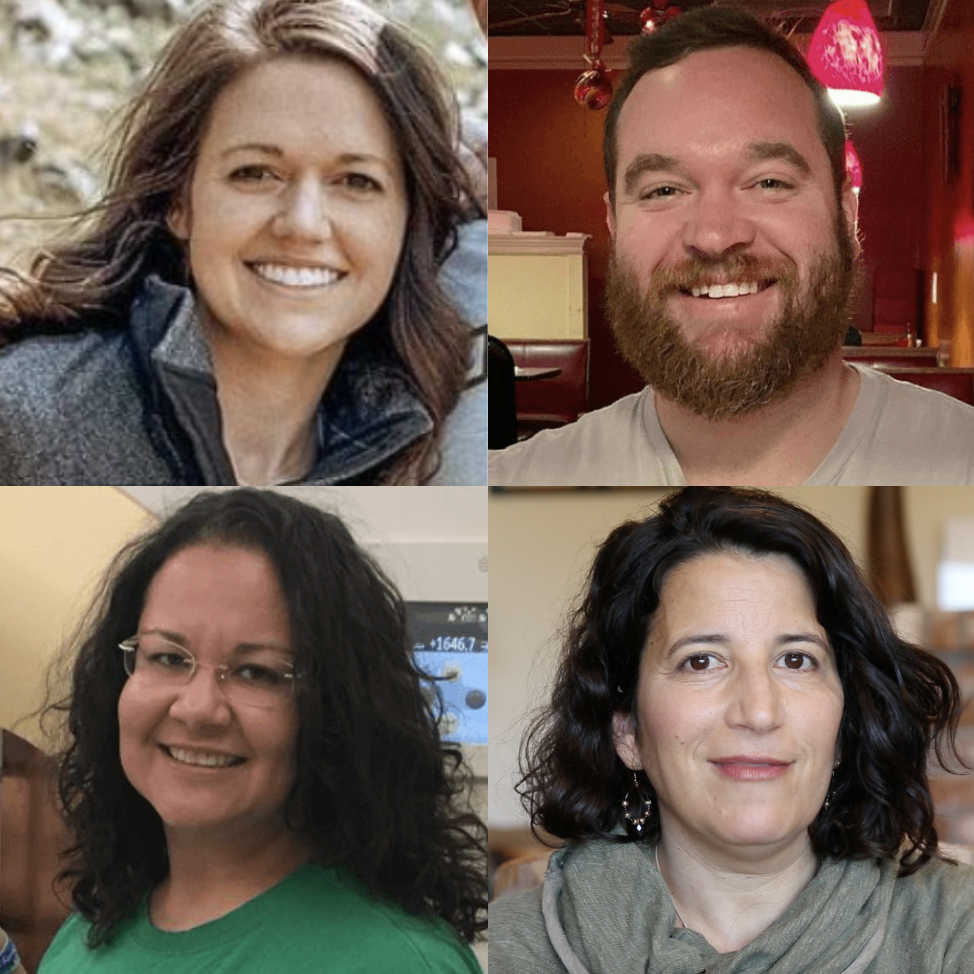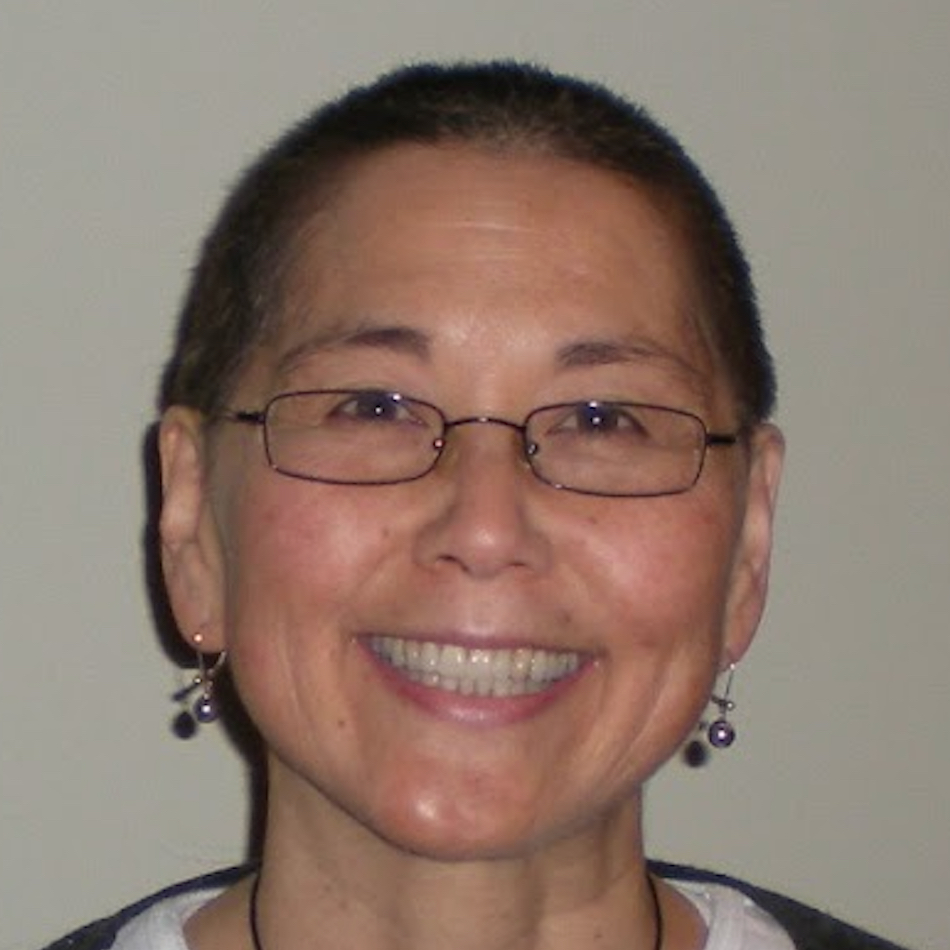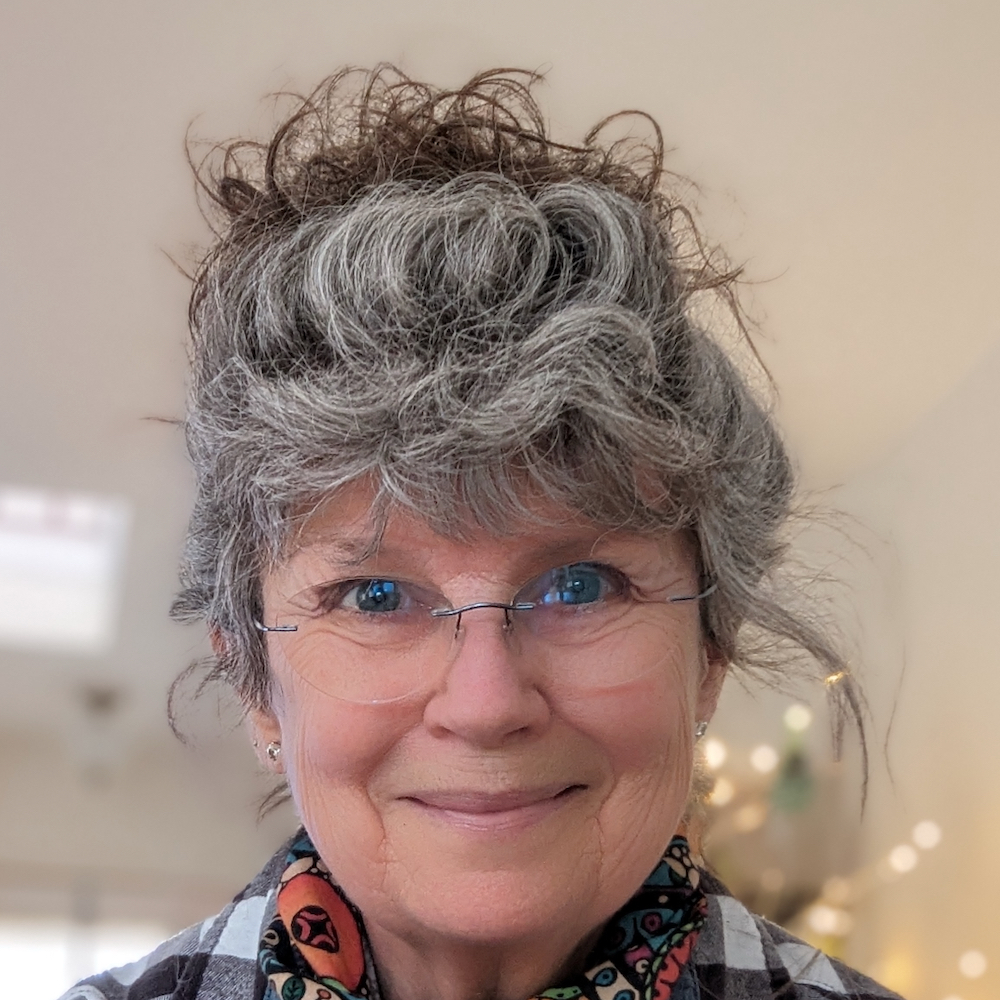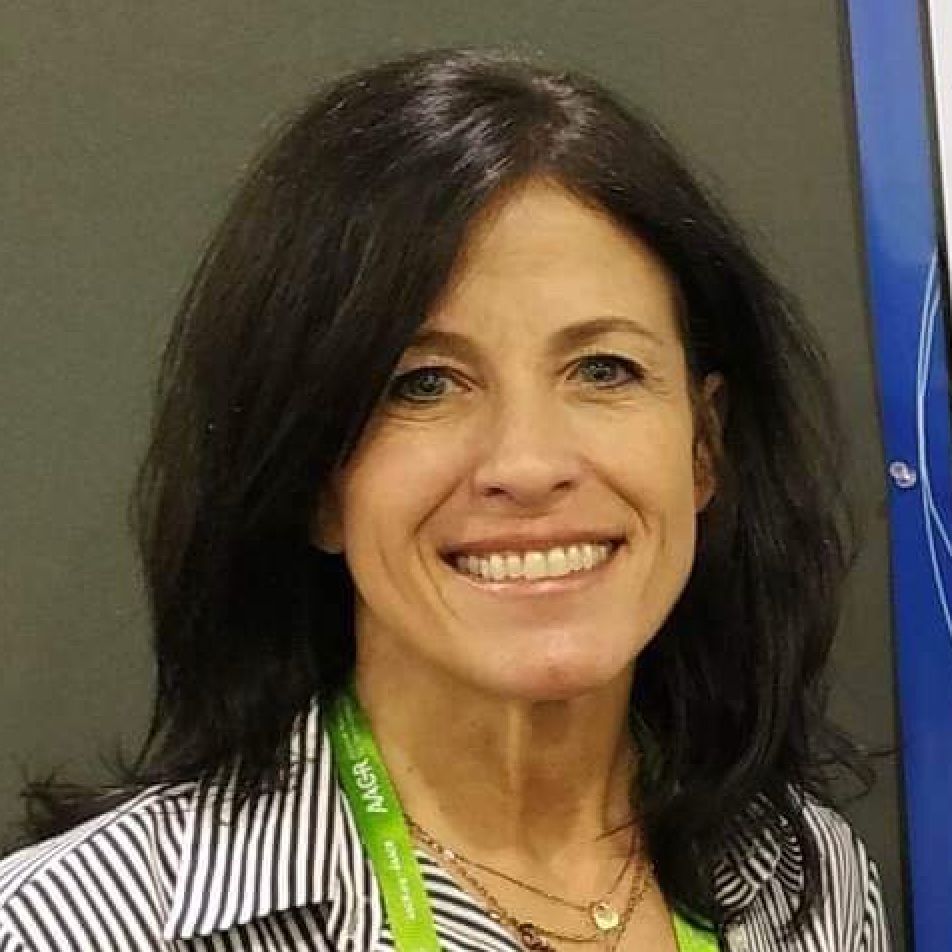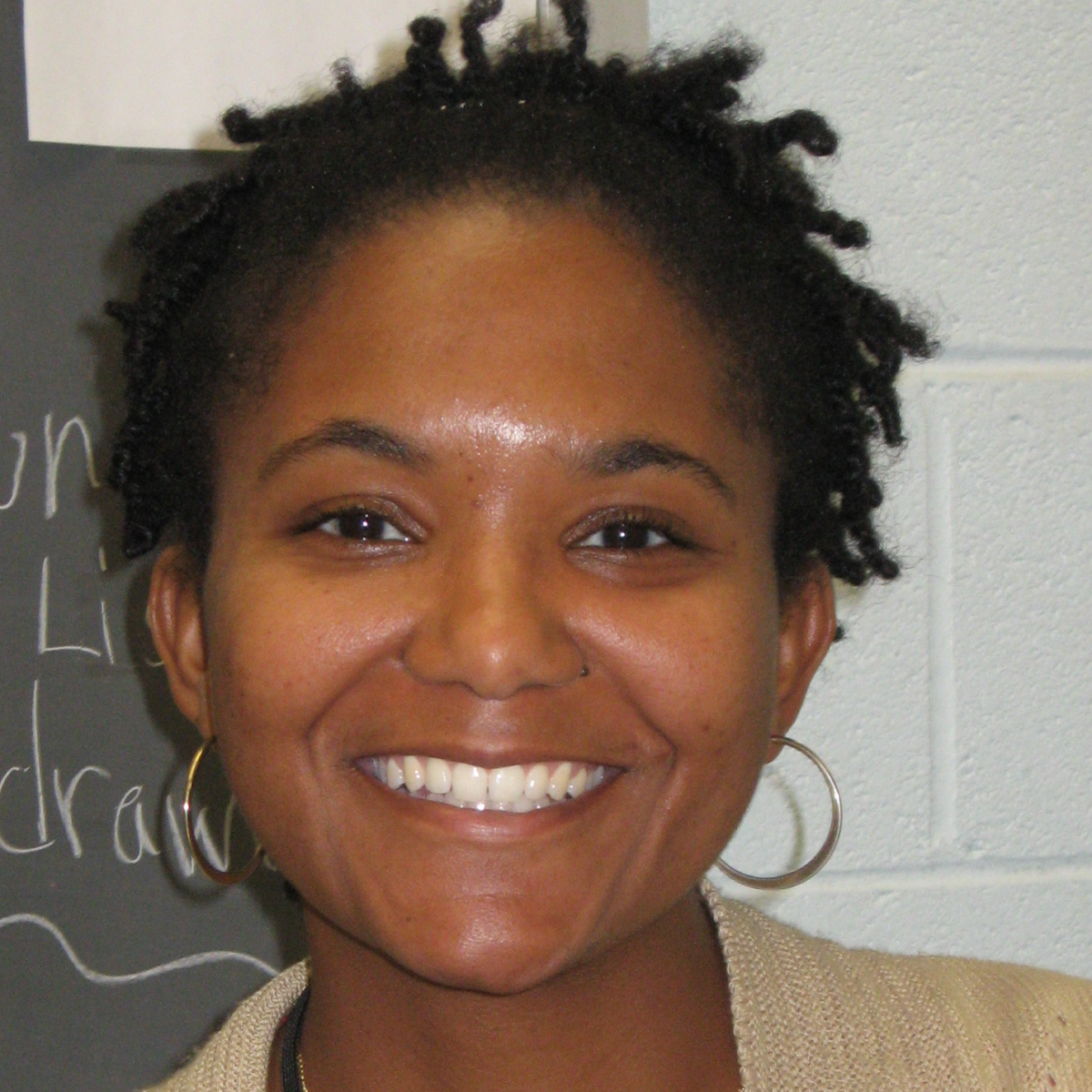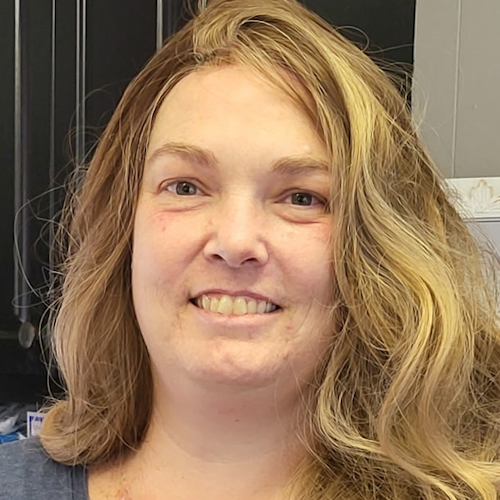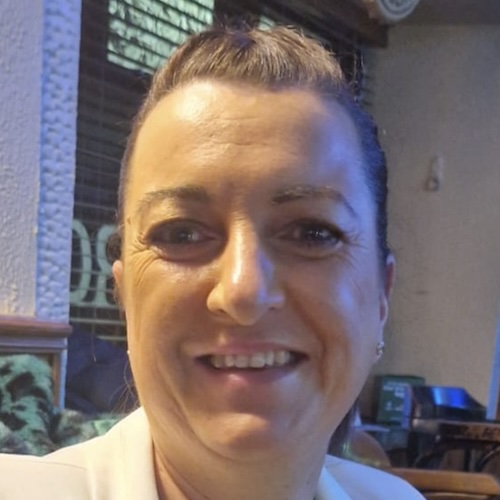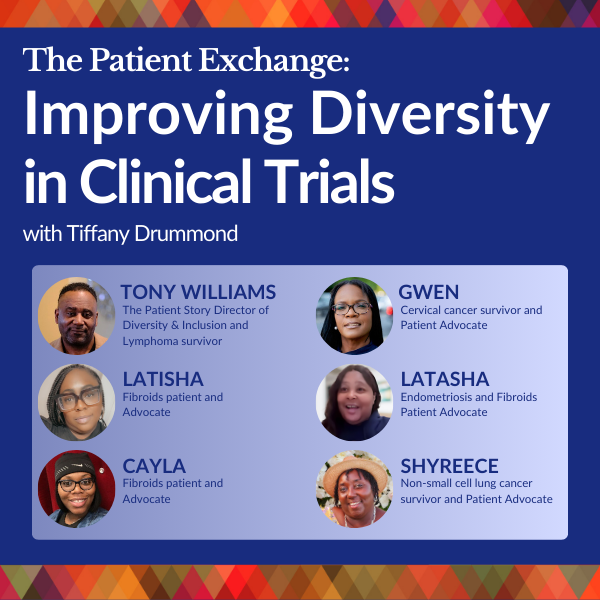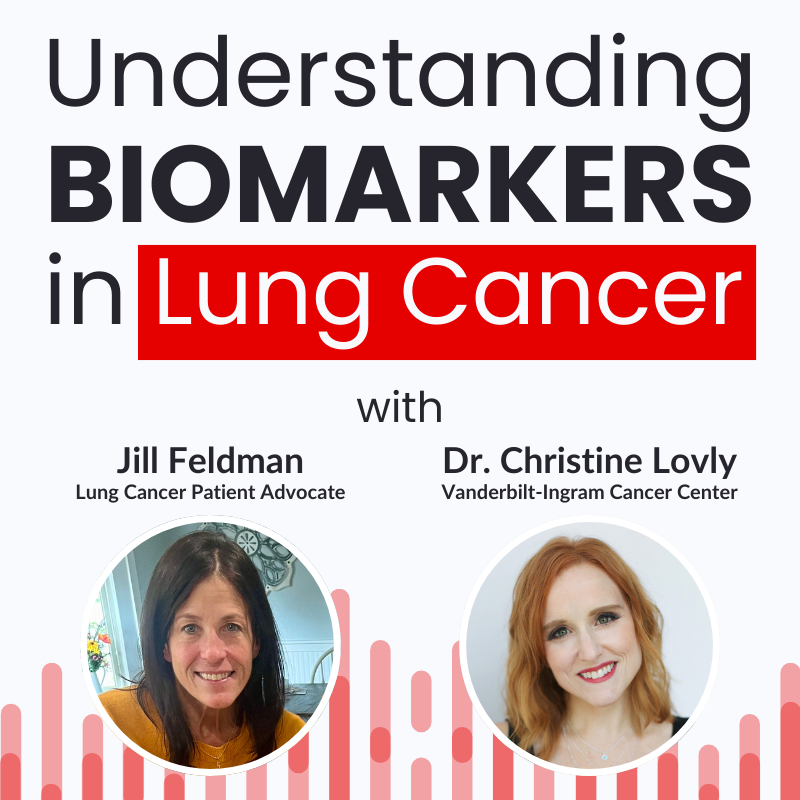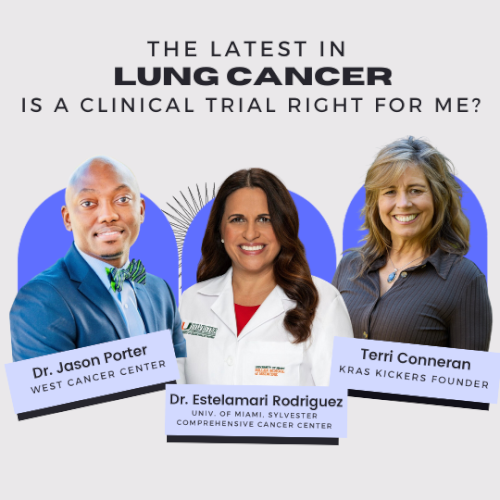Lung Cancer Patient Stories and Expert Interviews
Unsure of what to do after a lung cancer diagnosis? Explore in-depth lung cancer patient stories from our community members who share everything from first symptoms to navigating life with cancer.
Also hear from lung cancer experts, like an oncologist who specializes specifically in all lung cancer cases and talk about developments in targeted therapies that have helped decrease the number of NSCLC deaths in recent years. There is a lot of development in understanding biomarkers that have led to new treatment options.
Our Latest Video: The ROS1 Biomarker Explained
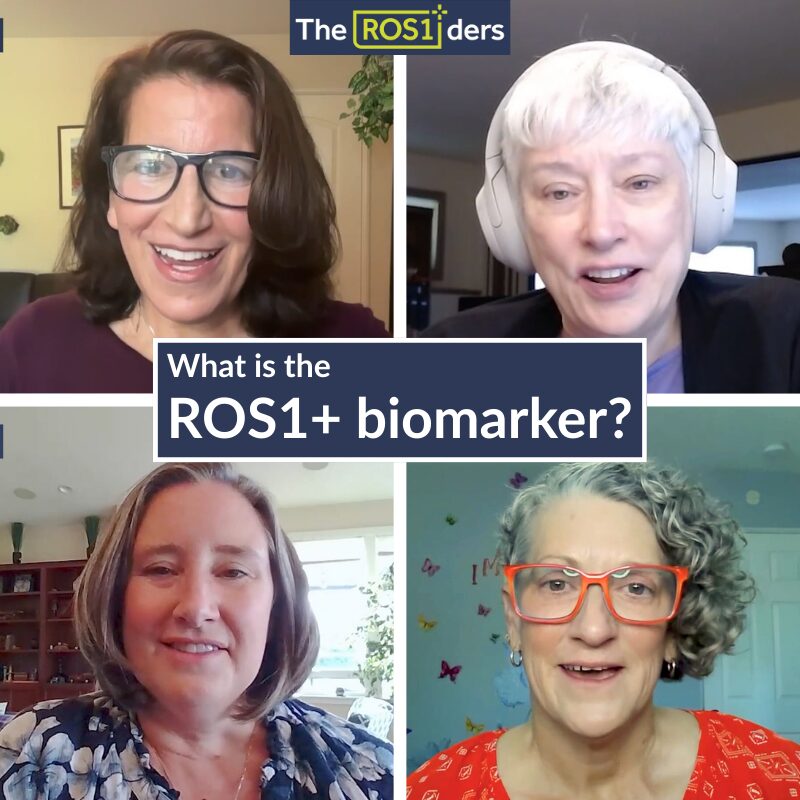
This four-part video series, created in collaboration with our partner, TheROS1ders advocacy organization, is designed to help patients and care partners better understand ROS1-positive cancer and feel less alone (and more empowered) after diagnosis.
The series, lead by patient advocates and ROS1+ oncology experts, explains why finding the ROS1 biomarker matters and how community knowledge can support more informed care conversations.
The White Ribbon Project Series
The White Ribbon Project is a grassroots organization is powered by lung cancer patients, caregivers, healthcare providers, researchers – anyone who wants to help raise lung cancer awareness. The group creates and distributes wooden white ribbons as a symbol of its powerful movement to shift the narrative on lung cancer and break stigmas.
Luna O., Non-Small Cell Lung Cancer, ROS1+, Stage 4 (Metastatic)
Symptom: None involving the lungs; severe abdominal pain
Treatments: Chemotherapy, targeted therapy
Calvin M., Lung Cancer, Stage 1
Symptoms: Frequent illness (monthly cycles of sickness), breathing difficulties
Treatment: Surgery (pneumonectomy)
Jill F., Non-Small Cell Lung Cancer with EGFR Exon 19 Deletion, Stage 1A
Symptom: Nodule found during periodic scan
Treatments: Surgery, targeted therapy, radiation
Lung Cancer Stories
Non-Small Cell Lung Cancer Stories
Non-small cell lung cancer makes up about 85- to 95-percent of all lung cancer cases. Explore non-small cell lung cancer stories below.
“Under the umbrella of non-small cell lung cancer, there are now sub-categories based on molecular changes,” Dr. Camidge explains. “That means it’s not just based on what it looks like down the microscope, but if you suck DNA out of the cancer, you can find different mutations that act differently. “
Dr. Ross Camidge, Non-Small Cell Lung Cancer, Stage 4 (Metastatic)
Symptoms: sore shoulder muscle, breathing sounded different
Laura R., Non-Small Cell Lung Cancer, ALK+, Stage 4 (Metastatic)
Symptoms: Persistent cough, fatigue, bone pain
Treatments: Targeted therapies (tyrosine kinase inhibitors or TKIs, including through a clinical trial)
Drea C., Non-Small Cell Lung Cancer, ROS1+, Stage 4 (Metastatic)
Symptoms: Swollen ankle resulting from a deep vein thrombosis or blood clot, mysterious bruising, extreme weight loss, persistent shortness of breath, rattling sound coming from the throat while breathing
Treatments: Radiation therapy, chemotherapy, targeted therapies
Lysa B., Non-Small Cell Lung Cancer, ROS1+, Stage 4 (Metastatic)
Symptom: Severe but intermittent back pain
Treatments: Chemotherapy, radiation therapy, targeted therapy (including through a clinical trial), surgeries (lung resection, metastatic spine tumor surgery)
Ashley C., Non-Small Cell Lung Cancer, HER2+, Stage 4 (Metastatic)
Symptoms: Fatigue, breathlessness, persistent back pain, multiple rounds of bronchitis
Treatments: Chemotherapy, targeted therapy
Small Cell Lung Cancer Stories
Small cell lung cancer (SCLC) is only about 12-percent of lung cancer cases according to Dr. Camidge. Explore small cell lung cancer stories below.
Montessa L., Small Cell Lung Cancer
Symptoms: Chest pain, lingering cough
Treatments: Chemotherapy (cisplatin switched to carboplatin, etoposide), chest radiation, brain radiation (prophylactic)
...
Brian M., Small Cell Lung Cancer, Limited Stage
Symptoms: Persistent heartburn (suspected GERD), shoulder/armpit pain
Treatments: Chemotherapy, radiation therapy
...
Kristen P., Small Cell Lung Cancer, Stage 4
Symptoms: Shortness of breath during tennis sessions, persistent shoulder pain, severe pain in right side
Treatments: Radiation, chemotherapy, immunotherapy, bone-strengthening medicines
...
EGFR Lung Cancer Stories
Samantha V., Lung Cancer, EGFR+, Stage 2, Grade 3
Symptoms: Breathlessness, hoarseness, sinus infections, fatigue, pain in left side
Treatments: Clinical trial (targeted therapy)
Natasha L., Lung Cancer, EGFR+, Stage 4
Symptoms: Hoarse voice, squeaky breathing, cough, weight loss, fatigue
Treatment: Targeted therapy
Jeff S., Non-Small Cell Lung Cancer with EGFR exon 19 Deletion, Stage 4 (Metastatic)
Symptom: Slight cough
Treatments: Surgery, radiation, chemotherapy, targeted therapy
Jill F., Non-Small Cell Lung Cancer with EGFR Exon 19 Deletion, Stage 1A
Symptom: Nodule found during periodic scan
Treatments: Surgery, targeted therapy, radiation
Filipe P., Non-Small Cell Lung Cancer with EGFR Exon 19 Deletion, Stage 4 (Metastatic)
Symptom: Headache
Treatments: Surgery (to remove brain metastasis), cryoablation (to remove kidney metastasis), targeted therapy, SBRT, bispecific antibody
Lung Cancer Oncologists Interviews
Learn from the stories and interviews of lung cancer oncologists.
The Patient Exchange: Improving Diversity in Clinical Trials
Take part in a transformative conversation with five Black patients as they share their journeys navigating clinical trials.
Understanding Biomarkers in Lung Cancer
Lung cancer patient and advocate Jill Feldman sits down with Dr. Christine Lovly, one of the top lung cancer specialists in the U.S., to ask the questions she believes will help change lives.
The Latest in Lung Cancer Treatments: Is a Clinical Trial Right for Me?
Leading experts Estelamari Rodriguez, MD, MPH, from the University of Miami Sylvester Comprehensive Cancer Center, Jason Porter, MD, from West Cancer Center & Research Institute, and Terri Conneran, founder of KRAS Kickers, discuss the latest in lung cancer treatments and ongoing clinical trials.
Dr. D. Ross Camidge, M.D., Ph.D.
Role: Thoracic oncologist, Director of the Thoracic Oncology Clinical Research Programs
Focus: Lung cancer, small cell (Immunotherapy), EGFR (Osimertinib), ALK (Alectinib), ROS1 (Crizotinib), BRAF (Dabrafenib & Trametinib), NTRK
Provider: Univ. of Colorado
Lung Cancer Background
Lung cancer is the third most common cancer in the United States and includes two main types: non-small cell lung cancer (NSCLC), which make up about 75- to 75-percent of lung cancer cases, and small cell lung cancer (SCLC), at about 12- to 13-percent.
Lung Cancer Treatments
There are new treatment breakthroughs happening for different lung cancer types.
The 12-percent (small cell) is desperately in need of a breakthrough. They’ve been using the same chemotherapy for about 30 years. The first real breakthrough happened in October 2018 when they started adding immunotherapy.
Dr. D. Ross Camidge

Smoking and Stigma
It’s important to note that people with a wide range of smoking backgrounds – no history, some history, history of heavy-smoking, can all develop lung cancer.
More recently, there have been a growing number of campaigns to raise awareness about lung cancer and how anyone can be impacted. One popular message is, “If you have lungs, you can get lung cancer.”
“It becomes incredibly frustrating as an oncologist when people assume all my patients are smokers. My youngest patient was 14 when she was diagnosed, and people went, ‘Was she a smoker?’ Of course she wasn’t a smoker,” shares Dr. Ross Camidge, a lung cancer oncologist.
That prejudice is a way of removing empathy. We should educate people that that’s actually a very rude question to ask.
